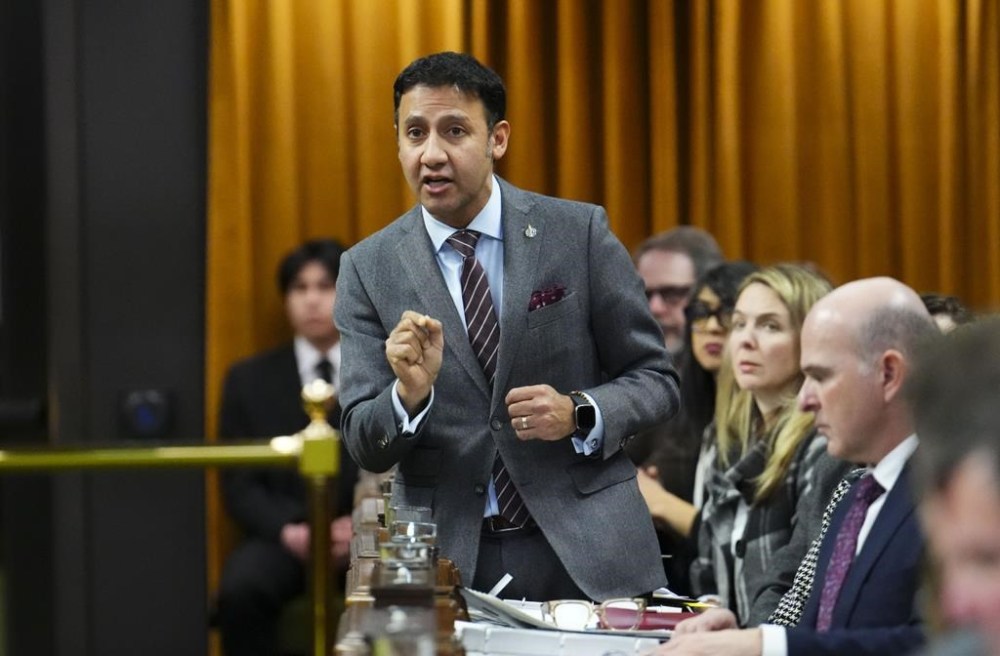‘We’re focused on ending this war’: PM on long-term plan for Ukrainians in Canada
Advertisement
Read this article for free:
or
Already have an account? Log in here »
We need your support!
Local journalism needs your support!
As we navigate through unprecedented times, our journalists are working harder than ever to bring you the latest local updates to keep you safe and informed.
Now, more than ever, we need your support.
Starting at $15.99 plus taxes every four weeks you can access your Brandon Sun online and full access to all content as it appears on our website.
Subscribe Nowor call circulation directly at (204) 727-0527.
Your pledge helps to ensure we provide the news that matters most to your community!
To continue reading, please subscribe:
Add Brandon Sun access to your Free Press subscription for only an additional
$1 for the first 4 weeks*
*Your next subscription payment will increase by $1.00 and you will be charged $20.00 plus GST for four weeks. After four weeks, your payment will increase to $24.00 plus GST every four weeks.
Read unlimited articles for free today:
or
Already have an account? Log in here »
Hey there, time traveller!
This article was published 20/02/2024 (673 days ago), so information in it may no longer be current.
OTTAWA – As the second anniversary of the war in Ukraine looms, war-displaced Ukrainians looking to make Canada their permanent home have few answers about what the government will do to allow them to stay.
Russia’s full-scale invasion of Ukraine, which began two years ago on Feb. 24, caused a massive refugee crisis as million of Ukrainians fled the country.
Since then, the federal government has granted 958,190 temporary emergency visas to Ukrainians so they can work or study in Canada while they wait out the violence at home.

As of Jan. 27, 221,231 had already made the journey to Canada.
Prime Minister Justin Trudeau said he met with one of those families in Winnipeg recently, and spoke to them about how they are settling in Canada and their long-term prospects in Canada.
“Their middle son was really finding it tough here in Canada, but the older son made a great group of friends,” Trudeau told a news conference Tuesday in Vancouver.
But when asked about whether Ottawa is making long-term arrangements for people that have settled in Canada, Trudeau would only say that his Liberal government is “focused on ending this war.”
“I think a lot of people are going to be making decisions once this war draws to a close,” he said.
“In the meantime, we’re going to continue to be there to support people going through unbelievably difficult times because of Vladimir Putin’s heinous actions.”
Of those recent arrivals, 92 per cent plan to stay and seek permanent residency, according to a survey of emergency visa holders conducted late last year by Operation Ukraine Safe Haven and the federal Immigration Department.
Only 1.4 per cent said they plan to return to Ukraine.
Without a designated program, many won’t qualify for regular immigration streams, said Randall Baran-Chong, founder of Pathfinder for Ukraine, a group that has helped war-displaced Ukrainians navigate Canada’s immigration system since the invasion.
Some people have applied as refugees and on humanitarian grounds — criteria which are not designed to accommodate such a large group of people who are already in Canada, Baran-Chong said.
“A lot of Ukrainians right now are in a very difficult situation,” he said. “We want to give them a dignified pathway to permanent residency, rather than these programs that are befitting other circumstances.”
Baran-Chong’s organization launched a petition to call for a designated program to offer permanent residency to war-displaced Ukrainians in Canada, and has asked Liberal MP Ali Ehsassi, chair of the House of Commons foreign affairs committee, to table it in the House of Commons.
Once that happens, the government must respond within 45 days.
“We feel like this petition will give us an opportunity for the Ukrainians to hear from government what is their official response on a specified pathway to permanent residency,” he said.
The government is allowing people with emergency visas to apply to extend them, and has also created a program that offers permanent status in Canada to people with Canadian family members.
Meanwhile, the government plans to put more than $475,000 toward expanding a legal advice hotline for war-displaced Ukrainians in Canada to help them understand their rights and navigate the immigration system.
“This substantial contribution connects Ukrainians seeking refuge in Canada with lawyers who can help them with issues such as sponsorship, refugee claims, and work permit questions,” Justice Minister Arif Virani said Tuesday.
The hotline, run by Pro Bono Ontario, fields questions related to work permits, employment contracts and even landlord and tenant concerns. The new funds will allow the Ontario hotline to serve Ukrainians across the country.
Increasingly, however, the questions it fields are about immigration and options to stay in Canada.
The emergency visas were always intended to offer temporary safe haven for people who are likely to return home, Virani said.
“If some decide to study, stay, perhaps meet a new partner, carve a life here, obviously those options are available, and we’ll find a way to make that happen.”
This report by The Canadian Press was first published Feb. 20, 2024.
